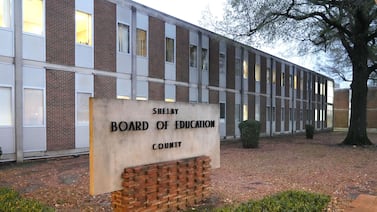Sign up for Chalkbeat Colorado’s free daily newsletter to get the latest reporting from us, plus curated news from other Colorado outlets, delivered to your inbox.
Denver Public Schools students are experiencing an “inequitable recovery” from academic dips during the COVID-19 pandemic, according to a new report from the Keystone Policy Center.
Denver students from middle- and higher-income families have more than caught up on reading and writing. In fact, their state test scores were higher in the spring of 2024 than they were in the spring of 2019, before the pandemic. In 2024, 70% of these students in grades three through eight met state expectations in reading and writing. That’s up from 2019, when 69% did.
But the test scores of Denver students from low-income families still lag behind. Their scores were lower in 2024 than in 2019. In 2024, just 23% of students from low-income families in grades three through eight met expectations in reading and writing. In 2019, 27% did.
“The key takeaway is that students from low-income households in DPS have struggled to recover academically when compared to their more affluent peers,” the report says.
The report uses eligibility for free or reduced price lunch as a proxy for family income level. Nearly two-thirds of Denver students qualified for subsidized school meals last year.
In a statement, Denver Public Schools said it recognizes that “students from low-income families face unique challenges, and we are actively providing targeted academic supports to schools, the majority of which serve high populations of FRL students.”
The district said it also offers academic support to students during before- and after-school, Saturday school, and summer school programs. Its six community hubs help students and families with basic needs as well as provide social, emotional, physical, and academic support, it said.
“DPS is committed to addressing the inequities in recovery and accelerating the trajectory of our historically underserved students,” the district said in a statement.
Similar test score trends exist for students of color and English learners in DPS, the report notes. Denver has historically had some of the largest test score gaps in the state.
Denver students from low-income families also saw bigger score drops between 2019 and 2024 than students from low-income families in neighboring Jeffco Public Schools and Aurora Public Schools, the report says. In addition, the DPS score drop of 4 percentage points for students from low-income families was steeper than the statewide average score drop of 2 percentage points.
In its statement, DPS noted that the overall number of its students meeting expectations on state math and literacy tests increased in 2024, though it still hasn’t reached pre-pandemic levels.
But report author Van Schoales, senior policy director at the Keystone Policy Center, said referencing overall state test scores, without disaggregating the scores by family income or other demographics, is “totally irresponsible” and “misleading.”
“It doesn’t tell you what the schools or districts are doing in order to support kids,” Schoales said.
The report concludes that Denver should bring back its former school rating system or create a new framework that would shine more light on the learning of students from low-income families.
Denver discarded its color-coded rating system in 2020 after years of complaints about it being too complicated. The district now uses the state’s school rating system, which is simpler.
While both systems award points based on how certain groups of students score on state tests, including students from low-income families, Denver’s old system set a higher bar for those students. It also penalized schools that had big gaps between the scores of students from low-income families and those from more affluent families.
Schoales said the state’s simpler rating system isn’t fine-tuned enough to distinguish between schools that are doing a good job serving students from low-income families and those that are not.
“If you don’t know what good is, it’s impossible to know how to get there,” he said.
Melanie Asmar is the bureau chief for Chalkbeat Colorado. Contact Melanie at masmar@chalkbeat.org.







